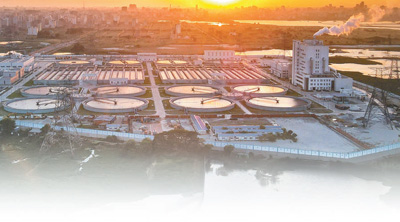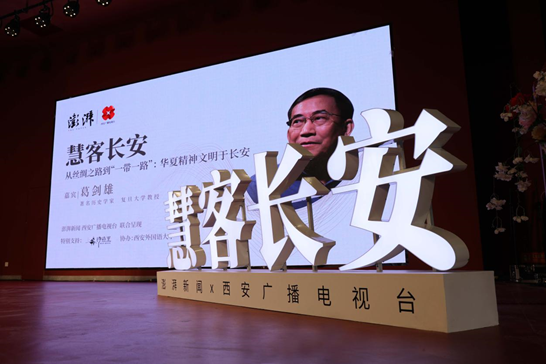Cultivate A Trillion-level Industrial Cluster Chongqing Helps The Innovation Cooperation Of Space Information Technology In The "Belt And Road"
Cultivate A Trillion-level Industrial Cluster Chongqing Helps The Innovation Cooperation Of Space Information Technology In The "Belt And Road"
Developing spatial information technology and industry, Chongqing will uphold the mind of openness and cooperation, work with Sichuan to participate in the joint construction of the "Belt and Road" spatial information corridor, improve support policies, and give full play to the role of linking regionally and connecting internationally in the Chengdu-Chongqing Twin Cities Economic Circle

Forum site
On June 11, the "Forum on the Construction of the Road to Promote Innovation in Space Information Technology" was held in Chengdu, Sichuan. The forum is hosted by the Chinese Academy of Sciences and hosted by the Chongqing Science and Technology Bureau, the Sichuan Provincial Department of Science and Technology and other units. It brings together experts and scholars from more than 30 scientific research institutions around the world to jointly discuss the important role of space information technology in promoting sustainable development and international cooperation. Chongqing showed its strong development momentum in the space information industry track at the forum.
The broad application prospects of spatial information technology and the development of international cooperation have become important topics of this forum. Kubanechbek Jumaliev, vice president of the Kyrgyz National Academy of Sciences, said that China has made remarkable achievements in space exploration. The Belt and Road Initiative and the "Digital Silk Road" in it provide unique opportunities for the efficient circulation and sharing of space information, and will promote sustainable development and common prosperity for countries around the world. Mazlan Hashem, a professor at the Malaysian Institute of Technology, believes that China has some very excellent solutions in the field of space information technology, and through international cooperation, more practical experience can be shared. Mengzip Sevatana, former deputy minister of Thailand’s Ministry of Natural Resources and Environment and senior adviser to the Thailand National Research Council, expressed his expectations for deepening collaboration in the future.

Guest keynote speech
Guo Huadong, an academician of the Chinese Academy of Sciences and director of the International Research Center for Sustainable Development, systematically introduced China's practice and achievements in global spatial information cooperation. He introduced that China launched the "Digital Silk Road" International Science Plan (DBAR) in 2016, and has now developed into a global scientific cooperation platform for Africa, ASEAN, Central Asia, Europe and other regions. At the same time, thanks to the Open Science Program of Sustainable Development Satellite 1 (-1), 105 countries have used the data of Sustainable Development Satellite 1. This is also the only satellite among the nearly 300 land observation satellites that share data to more than 100 countries around the world.
At the forum, Chongqing showed its strong development momentum and distinctive development path in the spatial information industry track. In the past two years, the average growth rate of the output value of the city's spatial information industry has remained above 15%, showing the vigorous vitality of emerging industries. What supports this rapid growth is Chongqing’s carefully constructed industrial ecology, core technologies that continue to make breakthroughs and a series of strategic layouts.
Focusing on innovation-driven development, Chongqing has laid out the country's first high-level science and technology innovation platforms such as the satellite Internet industry innovation center, the aerospace and earth network interconnection and information fusion laboratory, carried out core technologies such as satellite Internet mobile phone direct connection chips, conduction integrated baseband chips, and Beidou IoT modules. It has launched a series of advantageous products such as "Tianmu-1" constellation, Beidou satellite navigation chips and modules, and gradually built an innovation system that deeply integrates production, education, research and application.
In terms of application scenario creation, as a megacity, Chongqing has created 16 national first characteristic scenarios, including "Jiefangbei underground ring road seamless navigation", "Three Gorges terrestrial disaster prevention and control demonstration"; built demonstration projects such as "Beidou Intelligent Connected Vehicles", "Beidou New Smart City", and created the first batch of Beidou-scale application pilot cities in the field of industrial and information technology in the country. At the same time, the Chengdu-Chongqing Twin Cities low-altitude economic corridor was jointly built, and the Chengdu-Chongqing region was selected as the first batch of pilot projects for "basic classification management of airspace".

Topic discussion
In addition, Chongqing has actively built an open and collaborative industrial ecosystem, established the International Ecological Alliance of the Aerospace Information Industry, and held the International Ecological Conference of the Aerospace Information Industry with high quality. By promoting guidance with strength and leading business, it has gathered more than 100 space information industry enterprises such as Beidou Zhilian, Jiuzhou Xingyi, and Zero One Rocket to form an enterprise matrix and industrial chain covering "chip module-terminal manufacturing-system integration and operation services".
In the next step, Chongqing will promote the deep integration of space information with intelligent connected vehicles, low-altitude economy, and modern governance of megacities, and strive to create a new highland for the development of the space information industry.
Specifically, Chongqing strives to form a space information industry cluster with a core output value of 50 billion yuan and an associated output value of 200 billion yuan by 2027; accelerate the construction of the physical and transportation demonstration zone, deepen 50 characteristic scenarios such as emergency rescue in the central urban area, and improve the intelligence and refinement level of urban governance; accelerate the construction of the national space-time big data center, and build a commercial satellite southwest assembly base.
To develop space information technology and industry, Chongqing will uphold the mind of openness and cooperation, work with Sichuan to participate in the joint construction of the "Belt and Road" spatial information corridor, improve support policies, give full play to the role of linking regional and international connections in the Chengdu-Chongqing Twin Cities Economic Circle, and make the space information industry a new symbol of innovative development in countries and regions of the "Belt and Road".

Signing ceremony
This forum is not only a stage for ideological collision, but also a catalyst for promoting practical cooperation. Many heavyweight cooperation achievements were officially implemented during the forum.
The International Research Center for Sustainable Development Big Data signed a memorandum of cooperation with the International Center for Comprehensive Mountain Development and the Institute of Earthquake Research of the National Academy of Sciences of Kyrgyzstan; the 54th Institute of China Electronics Technology Corporation, the Yangtze River Delta Industrial Innovation Research Center, Shanghai Jiaotong University, and the University of São Paulo in Brazil signed the "Enablement Agreement on the Next Generation Radio Astronomy Science and Technology Research Cooperation Alliance based on Quantum Computing Empowerment".
The forum also released the scientific monograph "Report on Earth Big Data Supporting Sustainable Goals - "Belt and Road" Chapter". It is reported that the monograph is the world's first scientific achievement to systematically use big data to support the Sustainable Development Goals. It collects 156 typical cases and demonstrates China's exploration and practice of using scientific and technological innovation to continuously promote the implementation of the United Nations' "2030 Agenda for Sustainable Development".
Photo provided by Chen Li, a reporter from Upstream News, Chongqing Science and Technology Bureau





